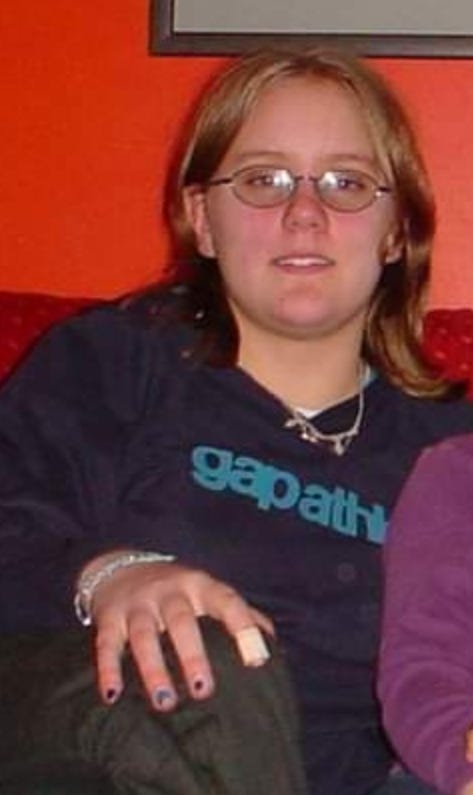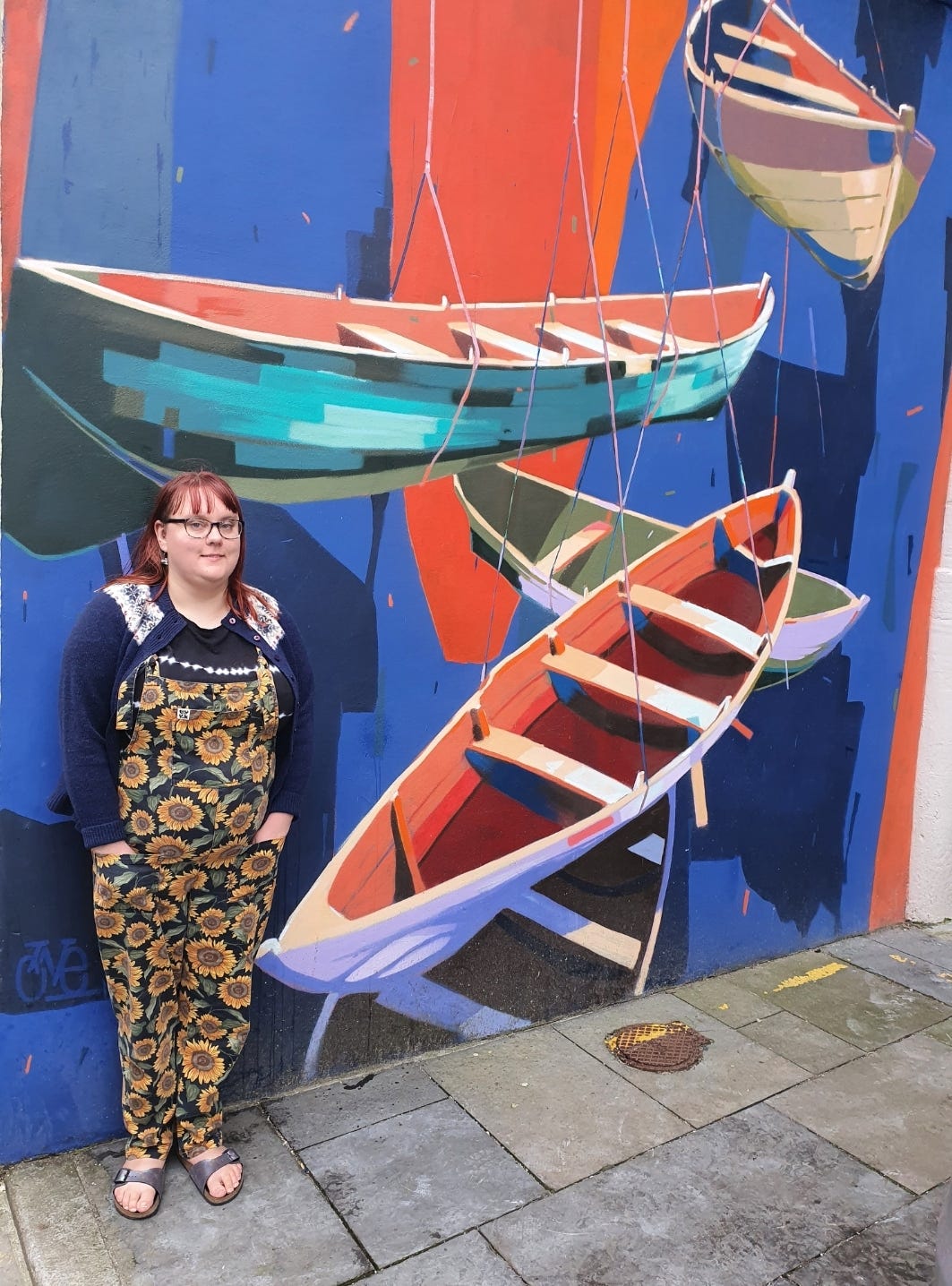Maggie Thatcher, Inclusive Education Snatcher
The effect of Section 28 on my youth
I learned the above phrase from my dad many years ago. He told me that Margaret Thatcher did away with free school milk while she was Education Secretary, and that this had led to the coining of her nickname ‘Maggie Thatcher, Baby Milk Snatcher’. As you can see the version I’ve used to title this entry isn’t perhaps as snappy, but it’s yet another thing she did later in her career that had an adverse effect on school kids.
I wasn’t going to post anything for Coming Out Day this year, but recent events got me thinking, so here we are - a little late as usual.
I was born on the 29th of April 1988, nine years into Mrs Thatcher’s term as Prime Minister of the United Kingdom. My birth famously disrupted one of the opening concerts of that year’s Shetland Folk Festival. On 24th of May that year, less than a month later, Section 28 was brought into law, after years of increasing hostility towards LGBTQ+ people. It prohibited the ‘promotion of homosexuality’ by local authorities, particularly in schools. I was a brand new babe in arms and the so-called Iron Lady had already wrecked my education along with that of a number of other kids of my generation and even before.

“Children are being taught that they have an inalienable right to be gay.” (Margaret Thatcher. I can only presume Satan handed his wee pitchfork over to her when she turned up in Hell.)
Thatcher resigned two years later, and in 1997, the Tories under John Major suffered a colossal defeat, with the Blair-led Labour Party winning by a landslide victory. In 1999, the Scottish Parliament came into being, also led by Labour under Donald Dewar. Among other things, it used its newly granted devolved powers to abolish Section 28 on 21st of June the following year, just in time for me starting secondary school that autumn. England and Wales followed suit on the 18th of November 2003. So far, so progressive. Except here’s the problem - no framework was put in place to undo the damage Section 28 did, and so there was little change on that front.
I can safely say, hand on heart, that I had little to no education about LGBTQ+ people during that time. I only found out the term ‘lesbian’ when I was about nine, when another kid called me it as a pejorative term. This wasn’t the last time it happened either. That being said, I remember that in Primary 5 our term project focused on pirates, and at one point we studied the comradeship of Annie Bonney and Mary Read. Mary was disguised as a man, and Annie was the wife of the ship captain, Jack Rackham. Annie fell for Mary, but upon discovering she was a woman they apparently just became close colleagues. Even as a kid I questioned that, but would never have said so in class.
My first positive memory of LGBTQ+ people in media was when the late Stephen Gately of Boyzone, whom then 11-year-old me was a fan of, came out in 1999. After initially being weirded out by it, I became aware from reading some of the magazines they featured in, such as Smash Hits and Top of the Pops, that his friends, fans and bandmates all still loved him just as he was. In hindsight, what he did was incredibly groundbreaking, and he deserves to be remembered as a hero for that.
Even though I started secondary school the year that Section 28 was abolished, little changed. I still remember it being distinctly heterosexual - although my History teacher, when teaching us about Nazi Germany, did point out that Ernst Röhm, the leader of the SA (Brownshirts) whom Hitler had killed during the Night of the Long Knives, was known to be gay and that this was a contributing factor in his death. When showing us the film adaptation of Cabaret (yes, really) to give us an idea of what Weimar Germany was like pre-Hitler, he was able to point out that Christopher Isherwood - who wrote the books the musical and film were based on - was also gay. (Also - Liza Minnelli, daughter of the late Judy Garland, in the lead. Both icons and allies to the LGBTQ+ community, although I found that bit out independently.) Finally, while learning about British democracy, we were shown the 90s adaptation of An Ideal Husband, from the stage play written by, of course, Oscar Wilde, famously persecuted and imprisoned for being gay. I mention these because I genuinely do not remember any other lessons at school making mention of LGBTQ+ people, in a positive or negative light - although Shakespeare plays featuring men playing all the roles, even the women, was likely touched on at some point in my English classes.

I couldn’t even really pinpoint when I realised I was queer. Even then, I thought the acronym only consisted of the first four letters, and so, by a process of elimination (I like guys, but I may also like girls, and I’m not very feminine but I still like being a girl) I concluded that I must be bi. I would never have said that publicly, though. I lived on a remote Scottish island, after all.
While I was aware of a few openly gay people in the isles, I still met very few of them until moving to Glasgow to study at Strathclyde Uni. My dear pal Ashley, whom I befriended in the beginner French class we both took to make up our credits in first year, is a prime example of this. She told me very early on that she was bi and had known since school. I admired her forthright attitude, but still didn’t feel like telling anyone that I was too - although I did mention it on my MySpace profile, but who on earth would have ever scrolled that far down?
At some point during my final year of my undergrad, I posted the following status to Facebook:
I wish my dissertation was asexual so it would do itself.
Yeah, that was a weird time in my life. If only I’d known then what I know now, eh?
I was in my twenties before I read a bit more into asexuality and how it applies to humans, but the more I did, the more I realised: that sounds like me. It was on this day in 2017 that I finally publicly described myself as such. It felt good to do, and I was lucky that the folk around me were generally supportive of the fact.
In 2019, the UK version of RuPaul’s Drag Race premiered on BBC3. One of the contestants, Divina De Campo - who placed 2nd overall that series - spoke at length in one episode about their experience of growing up under Section 28 and the damage it did. It was after this that I realised why LGBTQ+ issues were never touched on during my school years.
The recent Tory party conference, apart from showing how out of touch Rishi Sunak and his government are, seems to suggest heavily that they want to see Section 28, or something resembling it, brought back into legislation. To that end, outing children to their parents or guardians is NOT safeguarding them. It is, in fact, the opposite. The child could be living with homophobes and be at risk of serious harm. Let’s keep it consigned to history where it belongs. After all, Section 28 was heterosexual propaganda, shoved down the throats of kids unable to escape it because they had to legally be at school. Despite this, it failed to turn queer kids straight, only to damage and traumatise a generation of queer people. Why on earth would anyone want to see such blatant child abuse reintroduced into schools?

